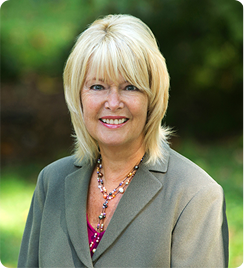
As we age, we wonder how we will continue to stay relevant. For some it is through career, for others through creation, and some through contribution. How does our age factor into our possibilities? We learn that engagement doesn’t stop at 65. Experts encourage us to continue working for numerous reasons: physical, mental, fiscal, and spiritual health. However, ageism stops some people along their journey. Sometimes the limiting beliefs are in our own heads and sometimes in the heads of the gatekeepers.
Let’s start with our own beliefs. I hear clients say they are too old to go “back to school”. They don’t want to invest in training for a new career or to upgrade existing skills. They doubt they will reap benefits from the expense of education. Or might they worry they are too old to learn?
Sometimes people at midlife wonder if they will be hired by employers often half their age. They may be reluctant to leave a job they have outgrown for fear they will not have a fighting chance at a new one. Or they fear spending precious savings on starting their own business, even though they possess great ideas, talents, and passion. However, the reality is that mature workers are taking up a larger piece of the labor force. By 2019 over 40% of Americans 55+ will be working and comprise 25% of total workers.
What is the truth about age discrimination? Because people are working longer due to longevity, need, or interest, we have more older people transitioning in the job market. The good news is that mature workers are needed due to fewer numbers available to replace them. The realistic news is that ongoing age discrimination exists. According to the Bureau of Labor Statistics, older workers stay unemployed longer and the unemployment rate for 55+ job seekers has more than doubled since late 2007.
Two experts in the mature employee field, Carleen MacKay and Brad Taft, offer guidance on finding and keeping work after 50. They debunk mature worker myths with statistics and common sense. See www.agelessinamerica.com for in depth information. Those of us involved in job search or wanting to avoid downsizing would do well to review the reported benefits of older, experienced workers and to find opportunities to share these benefits with those in hiring positions.
One way to stay relevant and competitive in your career field is to advance your skills. Additionally, it is vital to stay aware of trends both in your sector and globally. One example of changing trends is the switch from print newspapers and books to online reading. This revolution has impacted several careers and businesses. We find that some workers change with the tide and others flounder.
Changing along with society’s trends is practical for some people. One forward thinker is Alma who retired as a hospital psychologist at 65 due to an unsolicited alteration in her role. Alma still wanted to make a difference, so she studied geriatrics, passed new certifications, and began working in a new way. Alma is an example of being aware of our aging population’s needs and expanding skills to meet those needs. She now possesses numerous options as to where to work, how often, and in what capacity.
Samples of mature workers can be found among our friends and family or with the famous. Maya Angelou is at the top of her game at 85 with little signs of slowing down. Several politicians and their spouses have reinvented themselves once their terms ended: George H.W. Bush (89), Rosalyn Carter (86), Jimmy Carter (88), and Bill Clinton (67). All have followed their interests and created new ways to make contributions.
Who serves as your role model for staying relevant? I know an 85 year old social worker who has traveled many different paths during her valuable career. She continues to work, learn, and mentor others.
People in their 50’s and 60’s face multiple reasons to make career changes. The good news is that I see them getting interviews and offers and being recognized for their years of experience. Some find ways to become a free agent to add variety to their efforts. If you have skills that are needed and current, you will find opportunities to use them whether as an employee, entrepreneur, or volunteer.
Starting now, you can set the stage for relevance by:
Facing your own limiting beliefs about aging
Combating the myths by educating others
Becoming active with your professional associations
Networking with workers of all ages in your field
Staying abreast of new skills and technology
Being involved professionally in social media
Keeping aware of changing global trends
Go after what you desire and see you on the path!






